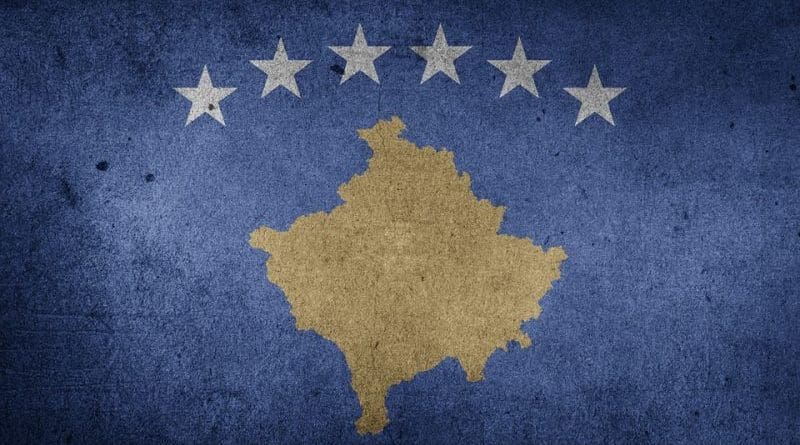Romania Faces Dilemma Over Euro 2024 Matches With Kosovo
By Perparim Isufi
Amid concerns raised in Romania after the country was scheduled by European football’s governing body UEFA to play matches against Kosovo, whose sovereignty it does not recognise, football officials in Pristina promised to welcome the Romanians like any other visiting team.
The Kosovo Football Federation, FFK, told BIRN that it has always cultivated “the spirit of cooperation with all UEFA member federations including those from countries which have not recognised the independence of our country”.
“We will welcome Romania at the Fadil Vokrri stadium [in Pristina] like any other rival and we expect the Romanian side to do the same [in the return match in Romania]. Football unites people and countries and this is UEFA’s motto itself,” the FFK added.
The Euro 2024 qualification draw which was held in Frankfurt, Germany, on Sunday put Kosovo in Group I with Switzerland, Israel, Romania, Belarus and Andorra. Kosovo and Romania’s national teams are due to meet in Pristina on June 16 next year and then in Romania on September 12, 2023.
But the day after the draw, Romanian sport news site GSP quoted the Romanian Football Federation, FRF as saying that it will discuss the issue with the government in Bucharest.
“Taking into consideration the fact that Romania and Kosovo have been drawn in the same group for Euro 2024 qualifications and taking into consideration the geopolitical situation, the FRF will have a dialogue with Romania’s government to find out the conditions for the matches at which our national team will meet Kosovo,” Romania’s Football Federation said in a statement.
UEFA rules prevent two countries in political disputes being drawn in the same qualifying group. For Kosovo, this applies with Serbia and Bosnia and Herzegovina.
Kosovo has been a member of football governing bodies UEFA and FIFA since 2016, but this hasn’t ended its problems stemming from political issues.
In March last year, the FFK expressed fury following reports that Spain will not allow the display of the Kosovo flag and that the country will be represented as a ‘territory’ at a World Cup qualification match. The match, however, went as planned.
In 2016, Ukraine’s national team refused to play a World Cup qualifying match against Kosovo on its soil so the venue was moved to Krakow in Poland.
Other non-recognisers that Kosovo has played so far, including Greece and Cyprus, have not posed any issue.
“We haven’t had any obstacles to playing against any other country and this has been proven in recent years,” the FFK said.
“Although in the past there have been voices in the media that have tried to take a political approach to matches against Kosovo, in the end the matches have been played because UEFA is uncompromising in this regard and does not allow the interference of politics in sport,” it added.
The FFK also insisted that “the independence of our country is an irreversible reality and accepted by the majority of democratic states in the world”.
Romanian news site Sport.ro quoted former Foreign Minister Teodor Melescanu as saying that a solution should be found before the match takes place.
“Kosovo is not recognised by a number of states, including us, Romania. We have never recognised the independence of Kosovo. Normally, our Football Federation, through Razvan Burleanu [president of the FRF] should also discuss with other states that have the same position as Romania and arrive at a method that should not destroy the entire system, but also respect things which are very clear from Romania’s point of view,” Melescanu said.


it is difficult to understand why Kosovo democracy is different from Donbass democracy.
This is bigger than any DILEMMA.
This is the consequence of Western hypocrisy over Kosovo issue.
Some can play football unlike others who are not allowed.
Unfortunately for UEFA, this is politics, they involved politics in sport with allowing Kosovo to participate.
#Kosovo_is_Serbia